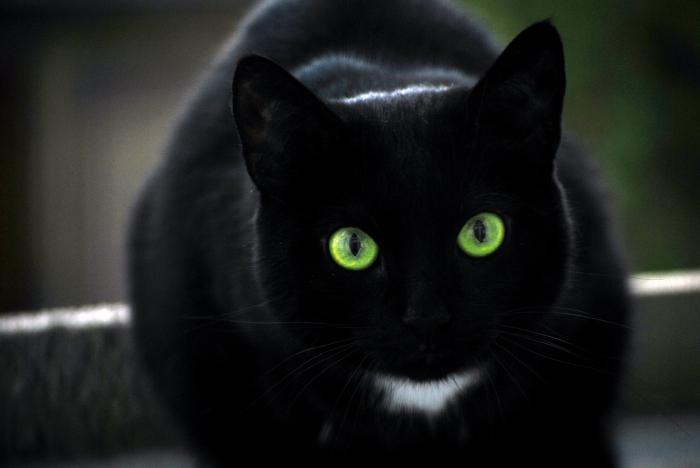Madness - what kind of state is it?
Since ancient times, people have experienced the manifestation ofmadness. Someone considered this an incurable disease, someone, on the contrary, was a divine gift. What is insanity? What are its causes? Is it curable? And if so, in what ways?
What does the word madness mean?
Until the end of the 19th century, the word madnesscalled a number of mental disorders of man. This included hallucinations, delirium, epilepsy, convulsions, attempts to commit suicide, depression - in general, any behavior that goes beyond the normal and familiar.
At the present time, madness is outdatedThe concept, however, people still actively use in colloquial speech. Now each specific disorder of the psyche has its own diagnosis. Madness is a generalized concept, which can be called any deviation in human behavior.

Forms of insanity
There are many different classificationsmadness. From the point of view of influence on others, they disclose useful and dangerous madness. The first type includes the magic gift of foresight, poetic and other forms of inspiration, as well as ecstasy and ecstasy. Dangerous madness is anger, mania, hysteria and other manifestations of insanity, during which the patient can cause trauma and moral harm to others.
By the nature of manifestation, madness is divided intomelancholy and mania or hysteria. The first form of psychic abnormalities is expressed in depression, complete apathy to everything that is happening. People suffering from this disease experience mental torment and suffering, for a long time are in a depressed state.
Hysteria and mania are completethe opposite of melancholy. They are manifested by the aggression of the patient, his agitated state and ferocity. Such a person can make impulsively ill-considered actions, which often have terrible consequences.
Also, madness can be classified by degreeseverity (mild, severe and acute). With a weak disorder of the psyche, people experience unwanted symptoms rarely, or they appear in mild form. Serious madness is a violation of consciousness, with which a person is unable to cope on his own. Symptoms become more frequent and powerful. Acute madness is characterized by strong mental disorders, which are of a permanent nature.

Causes of insanity
Due to the fact that the forms and varietiesmadness is very diverse, it is very difficult to identify common factors that can lead to insanity. Usually distinguish supernatural and physical causes of insanity.
In ancient times, insanity was often associated witha divine punishment for sins. Higher powers, making a person crazy, thus punished him. As for useful madness, then, on the contrary, it was considered a divine gift. Another obscure reason for this state was considered an obsession with demons. As a rule, in this case the patient's behavior was accompanied by uncontrolled actions.
Very often moral and mental problems cancause madness. This repetition of troubles day by day, a great grief, intense rage or anger. All these states can bring the mind of a person out of control. To physical causes of insanity are also traumas, as a result of which the human brain is damaged. It leads to insanity and a violation of the neurotransmitter balance.

Symptoms of insanity
In connection with the variety of forms and varietiesmadness it is impossible to single out the single symptoms that characterize this state. The only common feature of any madness is the behavior deviated from habitual norms.
Very often insanity is a total loss of controlabove themselves and their actions. It manifests itself in the form of aggression, fear, anger. At the same time, human actions are meaningless or aimed at satisfying instinctual needs. Self-control and awareness of their actions are completely absent. In some cases, madness is the exact repetition of meaningless and useless actions.
Symptoms of melancholic madness aredepressed state, apathy, detachment from the external world. A person closes in himself, reacts weakly to external stimuli, does not go into contact with others.
Often insanity is characterized by such symptoms,as a loss of a sense of reality and time, a blending of the objectively existing and the fictitious. In this state, a person can rave, talk strange things and see hallucinations.

Madness in culture
In the history of human culture, insanity is not alwayswas considered a disease. At some times people thought that madness was a gift of the Gods, a source of inspiration. In the era of humanism, for example, the cult of melancholy flourished. This form of insanity served as a means of self-expression for many poets and artists.
In painting there are a number of paintings with imagescrazy. Patients are shown on them with skewed faces, in ridiculous poses, with squinting eyes and terrible grimaces. Very often their facial expressions and facial expressions do not correspond to the situation depicted in the picture. It's just crazy to see, for example, the funeral of a laughing man.
In literary works, too, quite oftenpeople with mental disorders are described. They can play the role of predictors and sorcerers or people with mental illnesses. The theme of insanity is affected both in classical and in modern literature.

Treatment of insanity
Throughout the history of human developmentthere were various methods of treating madness. In ancient times people tried to get rid of this disease with the help of magic and witchcraft. From a man tried to drive out the demon, pronounced spells over him and read prayers. There are cases when holes were made in the patient's skull, allegedly helping the demon to leave the head of the unfortunate person.
In the Middle Ages, insanity was seen as punishment for peoplefor his sins, so he was not engaged in treatment. As a rule, at all times, people with apprehension and contempt treated the blessed. They tried to isolate them from society, expel them from the city or lock them away from the rest. Even in the modern world, crazy people are placed in clinics and are engaged in their treatment, previously shielded from the rest of the world. To date, there are several ways to cure madness. The word "psychotherapy" is used increasingly and includes various types and methods of getting rid of madness.
</ p>>







